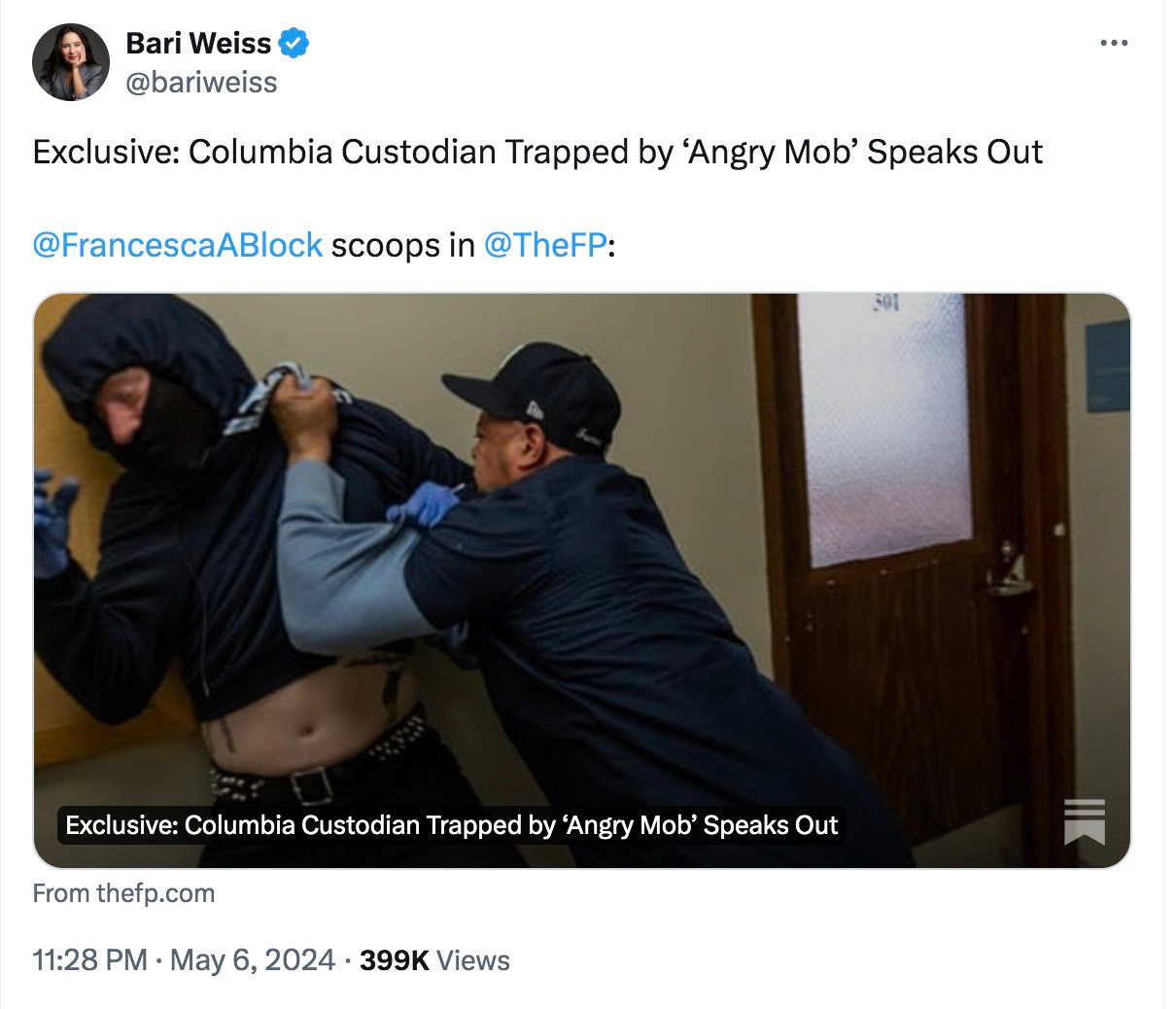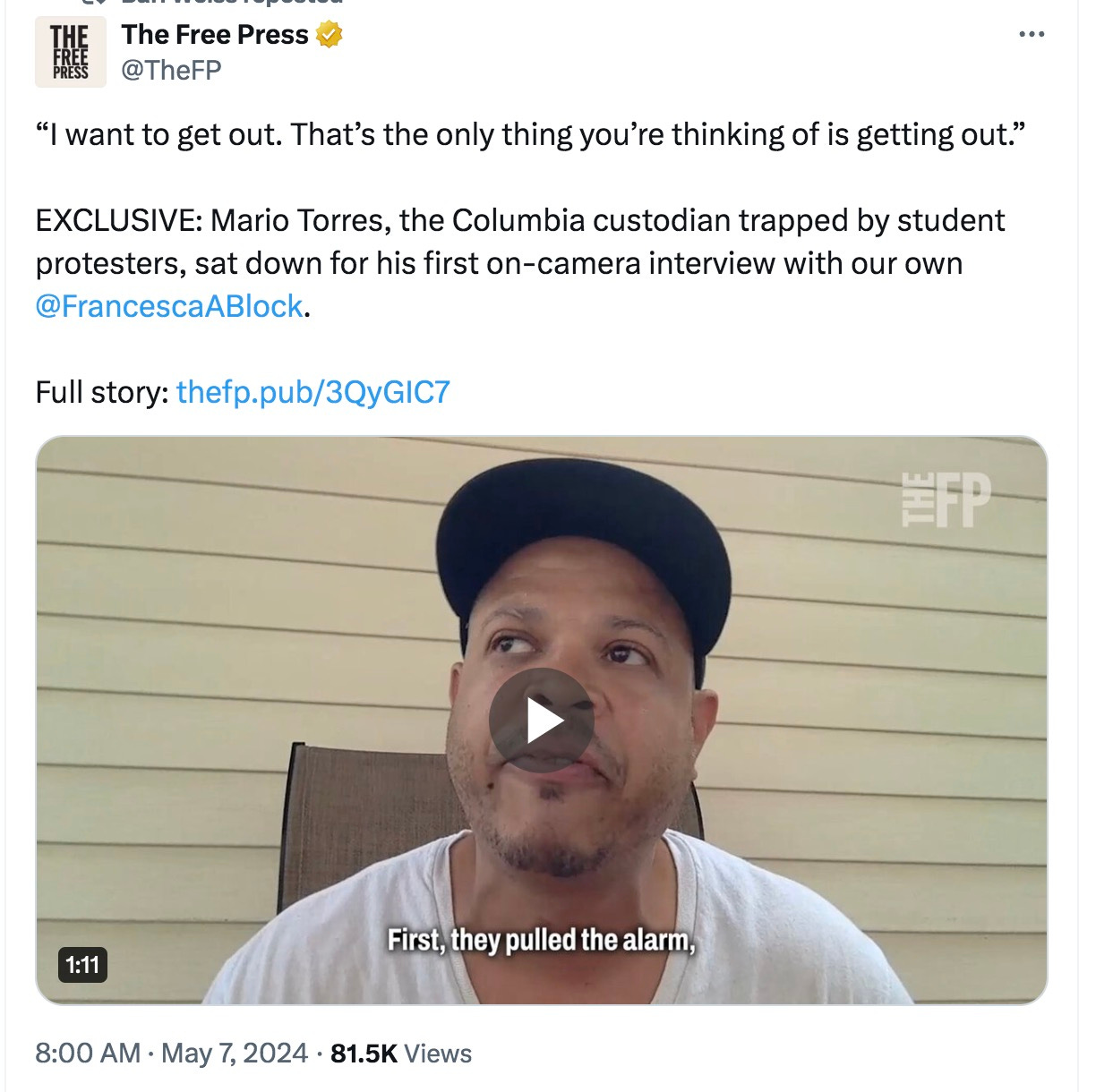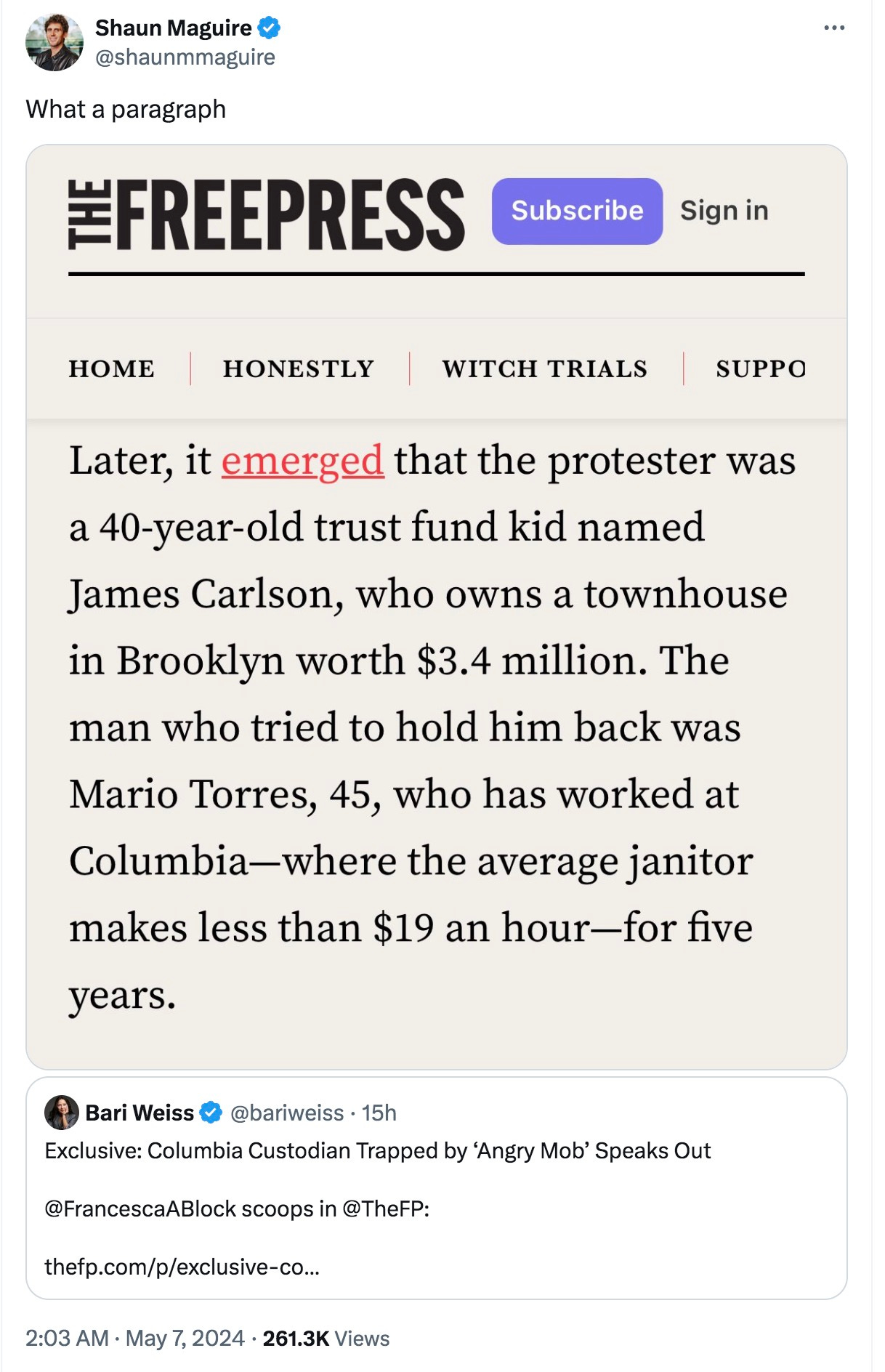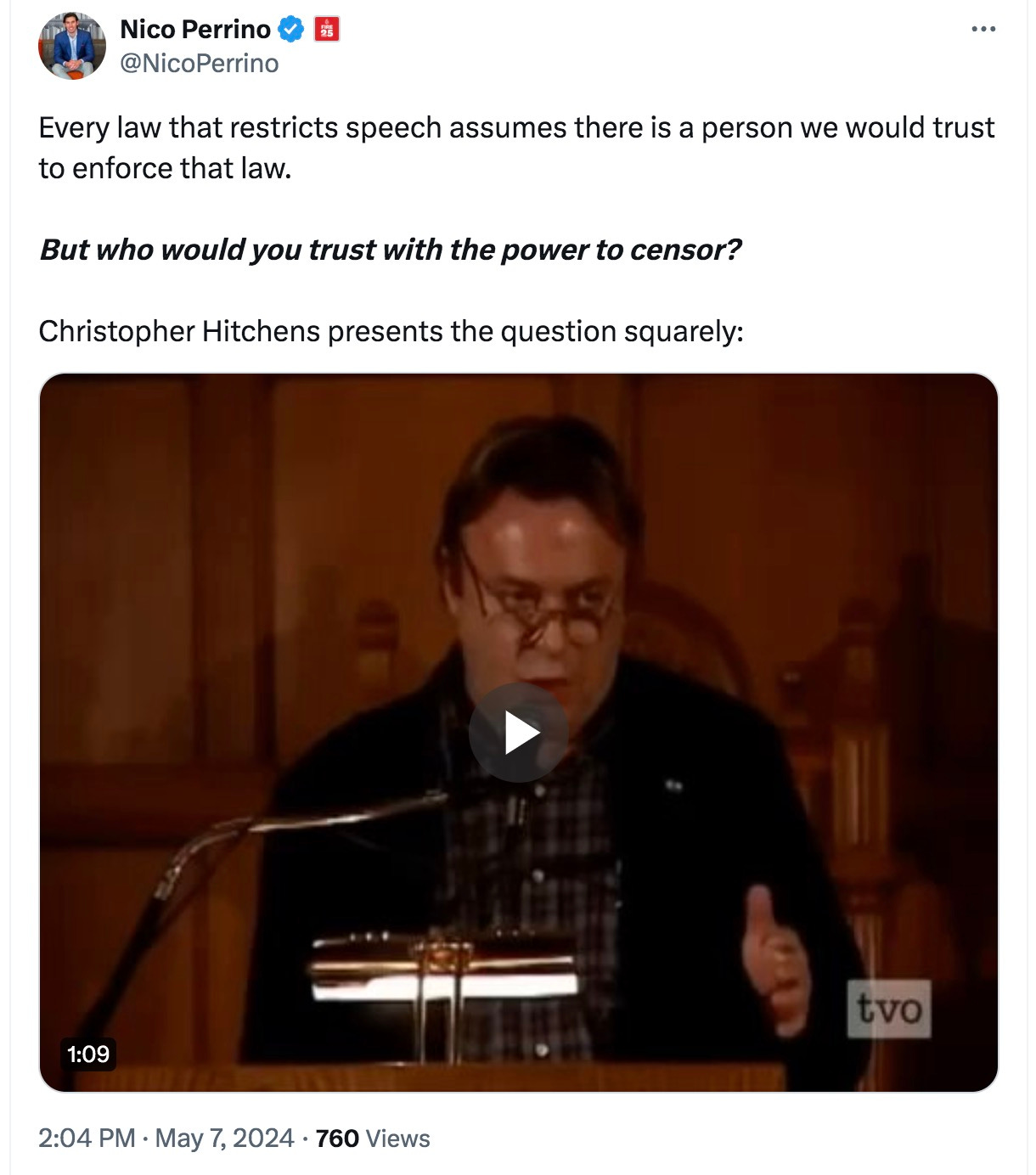A round-up of the latest and best musings on the rise of illiberalism in the public discourse:
Stephen Akey: The Canary in the Public Library
At Persuasion, Brooklyn author and essayist Stephen Akey reaches back a few decades to his experiences with the Progressive Librarians Guild in Brooklyn as an early example of the left’s institutional take over. While intersectionality is now the norm, Akey says the PLG was a pioneer in the field.
Being a lifelong, mild, and not especially engagé liberal, I was surprised and somewhat flattered when in the spring of 1990 I was invited to join the newly formed Progressive Librarians Guild (PLG). A few months before, I had published an article in The New Republic critiquing the current vogue towards the overt commercialization of library acquisitions that, from my perspective on the reference desk at the Brooklyn Public Library, wasn’t serving the public very well.
. . . [A] couple of months later [I attended a] never-to-be-forgotten, numbingly boring, three-and-a-half hour PLG meeting held in a dismal office building near the Port Authority bus station in midtown Manhattan[.]
That meeting comes back to me now, because I see in it some of the seeds that were to exfoliate in the woke progressivism of our own time. In particular, the PLGers, both at that meeting and in their house organ, Progressive Librarian, seemed less interested in instigating dialogue than in terminating it. A key issue on the agenda that day was the upcoming exhibition planned by the Library of Congress documenting the quincentenary of what had once been called, cringingly, “Columbus’ Discovery of America.” Even in 1990 it was perfectly clear that the arrival of Columbus’ shock troops in the New World was hardly the triumphalist pageant of manifest destiny drilled into the heads of generations of impressionable schoolchildren. But the PLGers didn’t want an acknowledgement from the Library of Congress of the legacy of violence, enslavement, and exploitation attendant on Columbus’ landfall in the Caribbean. They wanted to shut down the exhibition before it started: no Columbus at all, not even the name. Which was, of course, a non-starter.
That inability to compromise did the PLG no favors. The exhibition, 1492: An Ongoing Voyage, went on as scheduled. Nevertheless, our discussion—a discussion to forbid discussion, which carried the day—was ahead of its time. It seemed to anticipate the intolerance for dissent that characterizes at least some quarters of today’s left.
A second suggestion of mine was met with similar indifference bordering on hostility. Wouldn’t it be a good idea, I naively asked, if the nascent house organ had a letters-to-the-editor section that might encourage other points of view and convey the message that our positions were not set in stone? That question, apparently, was so stupid that it scarcely merited a reply. It was waved off impatiently before getting to serious matters on the agenda, which would have included (according to my notes) an “informational boycott” of South Africa and a formal proclamation condemning Israeli censorship.
[. . .]
The large geopolitical issues favored by the PLGers were, I'm afraid, pretty remote from the working life of most librarians. Yes, sign me up for any protest against South African apartheid, but couldn’t we devote a little bit of time to considering ways of making libraries more effective and democratic institutions? Many public libraries were, just then, radically dumbing down their collections in a deluded effort to give the public what the mass media determined it wanted—couldn’t we talk about that? No, we were going to talk about South Africa and Israel and colonialism. Lacking the confrontational spirit of my comrades, I deferred asking the question that was really on my mind: If you’re really that committed to the struggle against injustice and oppression, why futz around with librarianship? Why waste time lobbing snowballs at the hated Library of Congress when the Legal Aid Society or the Democratic Socialists of America were taking the fight directly to the institutions of oppression? For all I know, the PLGers were equally invested in other organizations of protest, but their library-related activism struck me as, at once, grandiose and trivial. They were fighting the good fight. And no one noticed.
I left librarianship some years ago, but the PLG is still at it, recognizing, as their current mission statement has it, “that libraries are sites where structures of injustice, exploitation, control and oppression are nourished, normalized and perpetuated.” That language seems a bit extreme to describe an institution, however imperfect, where you can reserve the latest John Grisham thriller or, for that matter, do research on “structures of injustice, exploitation, control and oppression.” The PLG might have seemed absurd—nothing but virtue-signaling—but give credit where it is due. It anticipated by a couple of decades the language adopted across the spectrum of institutional America. These days even chain drugstores want you to know how virtuous they are. The PLG got there first.
Read it all here.
Neetu Arnold: US campus chaos is not a free speech issue
For Neetu Arnold at UnHerd, the question is not so much “what speech should be free” as “what is speech?” Arnold says a lot of what is happening on college campuses today is simply bad behavior and should be addressed as such, instead of dressed up as a First Amendment issue.
The recent swathe of pro-Palestine encampments on US college campuses has created a rhetorical minefield for ongoing debates around freedom of speech. Determined to push the boundaries of what is acceptable, protesters have engaged in vandalism, harassment and intimidation — all while insisting that their detractors are infringing on their right to free expression. University leaders shouldn’t be tricked by this bait-and-switch: conduct is not speech, and universities have no obligation to allow students to run roughshod over campus in the name of free expression. But instead of enforcing the rules quickly and consistently, university leaders have emboldened protesters by failing to draw clear boundaries.
[. . .]
Tolerating these illegal encampments is not a principled defence of free speech. It’s a cowardly appeasement of a mob that threatens civil discourse on campus.
When university leaders vacillate on their response to the encampments, they mislead faculty and students on their rights. Free speech encompasses the right to peacefully protest, but even public universities may impose time, place, and manner restrictions on this right. For instance, a loud protest outside of a residential building at 2am should not be allowed. Taking over buildings and blocking pathways without authorisation are also disruptive methods of protest that should not be allowed. None of these restrictions infringe on freedom of speech: protesters can choose to deliver the exact same message in an authorised manner.
Hesitating to enforce restrictions that are already on the books, however, emboldens those who wish to exploit this confusion about free speech rights. Protesters invoke the seriousness of their cause to justify their extreme behaviour. University leadership must ignore this: for the rules to be fair, they must be content-neutral.
[. . .]
There is a better way to handle these protests: inform students about the boundaries of what is allowed, and consistently enforce the rules. Pomona College president Gabrielle Starr immediately suspended and arrested students who rushed into her office. The University of Florida clearly delineated what kind of conduct it would not tolerate, such as camping and violence. It also discussed acceptable activities including verbal and written expression. The University of Chicago acted similarly, going so far as to provide students with examples of acceptable protests.
Read the whole thing.
Jane Coaston & Greg Lukianoff: Getting Back to Basics on Free Speech
In her latest for the New York Times, Jane Coaston also addresses campus free speech. Coaston interviews FIRE’s (Foundation for Individual Rights & Expression) Greg Lukianoff about the current wave of protests and how it’s being handled by all parties involved.
At colleges and universities across the country, from Cal Poly, Humboldt, to Columbia, students have been protesting the war in Gaza. Some of those protesters have demanded that their universities divest from companies that may directly or indirectly support Israeli military operations; others have called for a cease-fire, while others have far wider demands.
[. . .]
I spoke with Greg Lukianoff, the president and C.E.O. of the Foundation for Individual Rights and Expression (FIRE), a nonpartisan group that champions and defends free speech. His most recent book, written with Rikki Schlott, is “The Canceling of the American Mind: Cancel Culture Undermines Trust and Threatens Us All — But There Is a Solution.” We discussed what free speech is and isn’t, what conservatives are getting wrong about college campuses and how Oct. 7 changed how he views free speech.
[. . .]
Coaston: Why do you think that student protests that limit the speech of others get more attention than universities that limit speech? Which concerns you more?
Lukianoff: They both concern me. Last year was the worst year for deplatforming that we’ve seen, and we include in that shout-downs and physically blocking people from getting through a speech, chasing someone off campus like they did actually at Berkeley this year. Those are deplatformings. This year is set to blow that out of the water. What universities need to own is that if they have students who think it’s not just OK but it’s actually profoundly moral to chase off speakers they don’t like, rather than protest outside or ask tough questions, for example, that they’ve done a real disservice to those students. They failed to explain what higher education is supposed to be.
[. . .]
Coaston: How should we be thinking about offensive speech? In your book, you discussed the difference between free-speech laws and free-speech culture, and that ties into the idea of hate speech or offensive speech because you can say that there’s no rule against hate speech in the Constitution, but if you are a college administrator, someone screaming, “Kill all the Jews,” it’s probably something that you are going to want to curtail, even though it is technically legal. So how do you think about the difference between what is legal and what should be culturally permissible?
Lukianoff: That there’s a value to know what people really think not even if it’s horrifying or ugly or gross but especially if it is. One way of looking at it is: When there’s an environment where people are not being authentic because they’re afraid of being offensive, it can actually sometimes give greater suspicion among people.
But there’s value to knowing what people really think even when it’s wrong. I always give the example of: Lizard people who live under the Denver airport do not actually, in fact, control the world, but knowing that your girlfriend or your uncle or someone in your family or your teacher, for that matter, believes that they do is really important information to know.
[. . .]
Coaston: What do you think conservatives get wrong about campuses right now?
Lukianoff: Conservatives focus a lot on the professoriate. Even though we are happy to defend their student chapters when they get in trouble for their speech, I take great issue with Charlie Kirk and Turning Point USA and their professor watch list, which is something that I very much object to, particularly when they add, “Here is how you can contact this administration.” We count that as a cancellation attempt.
Read it all.
Around Twitter (X)
When there’s a “people’s revolution,” sometimes actual people get in the way of “The People.” Via The Free Press:
Via Nico Perrino, a good question from Christopher Hitchens. Click for video.
And finally, there’s this from the University of Ottawa in Macklemore’s “Hind’s Hall” music video. Though, to be fair, spelling is not usually a university-level course:












